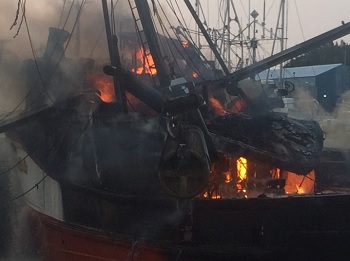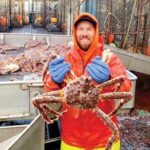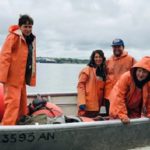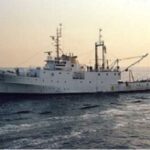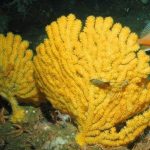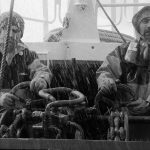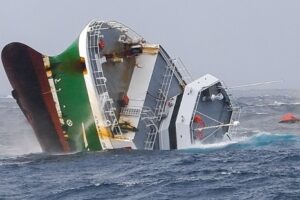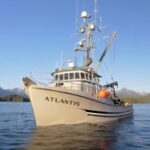Daily Archives: August 14, 2018
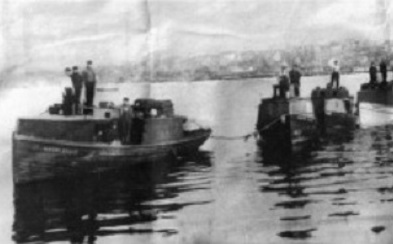
Help us learn more about the “Michigan Bears” and the men who fished aboard Gloucester’s oldest fishing vessel, the Phyllis A.
On September 6, 1920 five small vessels arrived in Gloucester Harbor and tied up in Smith Cove near Rocky Neck. The little boats and the 20 men who crewed them, had spent 24 days traveling 2,200 miles from Charlevoix, Michigan to start a new life for them selves and their families, doing a method of fishing that had been introduced, but not welcomed, by the fishing industry on the east coast of the Atlantic in the late 1800’s,,, gill net fishing, used here in Gloucester and the East coast to this day. >click to read<21:21
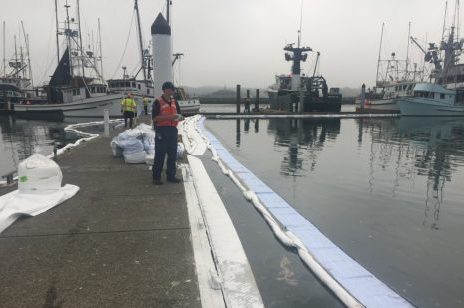
Coast Guard responding to diesel spill in Newport’s Yaquina Bay
The Coast Guard is responding to a diesel spill of approximately 700 gallons that occurred in Yaquina Bay in Newport, early Tuesday morning. Coast Guard oil spill responders from Sector Columbia River’s Incident Management Detachment in Portland arrived on scene at 11 a.m. to oversee cleanup efforts that began when local responders deployed containment booms and applied sorbents. Coast Guard watchstanders at Sector North Bend and Sector Columbia River received a report of the diesel spill at 12:30 a.m., from a representative of NWFF Environmental. The spill reportedly happened when the crew of the commercial fishing vessel Coast Pride left a transfer pump on. >click to read<19:35
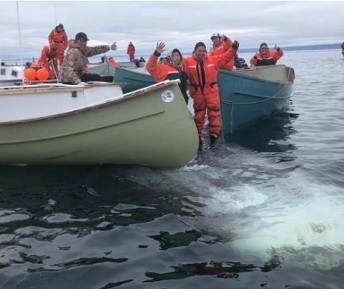
Food for hundreds – Iqaluit hunters celebrate successful bowhead whale harvest
The community of Iqaluit is celebrating a major milestone — and preparing to fill their freezers — after a bowhead whale was successfully hunted near the community on Tuesday afternoon. It’s been seven years since the last bowhead was hunted and killed near Iqaluit. This summer, the local Amarok Hunters and Trappers Association aimed to change that, organizing a hunt and encouraging locals to join.,,, As of Tuesday evening, the whale is being dragged back to Iqaluit, where it will be harvested and shared with members of the community. >click to read<18:53
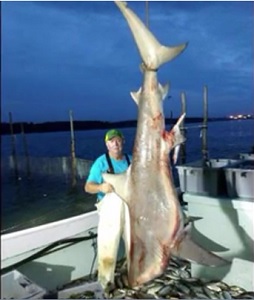
310-pound bull shark caught in Southern Maryland waters
A commercial fisherman pulled an 8.6-foot, 310-pound bull shark from his pound net trap at the mouth of the Patuxent River in Southern Maryland on Monday — an uncommon catch that has been the buzz of the bay as the picture has made its rounds. Larry “Boo” Powley, 65, of Hoopers Island said he found the shark, which had swum into the trap just below Cedar Point to feed on the fish inside, when he checked his four pound nets at sunrise. It wasn’t the first shark he’s caught in the Chesapeake Bay. But he was astounded at its size. “I’ve been on the water for 42 years,” Powley said. “I’ve never seen one that big.” >click to read<17:40

EDITORIAL: All aboard for saving right whales
There are good reasons why there haven’t been any right whale deaths in waters around the Atlantic provinces this year. It’s due to a combination of good luck and good management. Last year, an alarming number of endangered whales died — 13 in Canadian waters and five more off the U.S. The bodies of another two whales have shown up in American waters this year, while several whale rescues from entanglements were carried out in the Bay of Fundy.,,, Something had to be done. Last year, Ottawa ordered ships to reduce speed in Atlantic waters to help the slow-moving marine mammals avoid collisions. Fishermen were asked to reduce rope and other gear in the water to lessen the chances of entanglements. >click to read<15:22
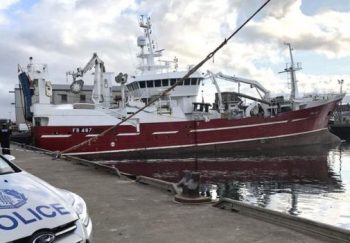
BREAKING: Man dead and others treated after Fraserburgh harbour incident
The emergency services were called at about 14:00 after reports of a group of men falling ill . One man was pronounced dead a short time later. Four other men are being treated in hospital. Details have not been released but they are not believed to be in a life-threatening condition. The Health and Safety Executive (HSE) and the Marine Accident Investigation Branch (MAIB) have been informed. >click to read<13:23
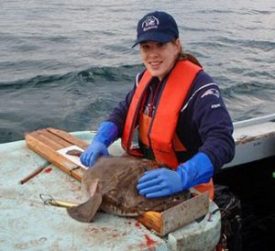
NOAA/NMFS to Reimburse Sector At-Sea Monitoring Costs
NOAA/NMFS will pay for all at-sea monitoring costs for fishing year 2018. Any groundfish sector trip beginning on or after May 1, 2018 that was selected for at-sea monitoring coverage is eligible for reimbursement. NOAA will also reimburse industry for an additional 25 percent of their at-sea monitoring costs in fishing year 2017 using remaining prior year funds, bringing the total reimbursement for 2017 to approximately 85 percent. This reimbursement was provided for by Congress through an FY18 funding increase for groundfish at-sea monitoring. >click to read<12:54
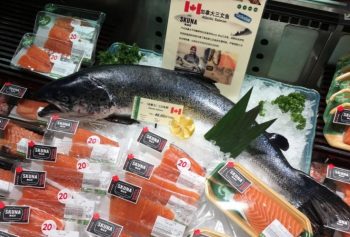
In China, rainbow trout is now salmon?
A Chinese fishery recently entangled in a “salmon scandal” — when it tried to pass off rainbow trout as salmon — has just helped the government draft a policy to reclassify rainbow trout as salmon. Two months after the revelation that one-third of the salmon sold in China was, in fact, domestic rainbow trout mislabeled to deceive consumers, the China Aquatic Products Processing and Marketing Alliance (CAPPMA), along with 13 Chinese fishery companies, recently announced new industry standards to broaden the definition of salmon, and now officially recognizes rainbow trout as legitimate salmon in the Chinese market. >click to read<12:28
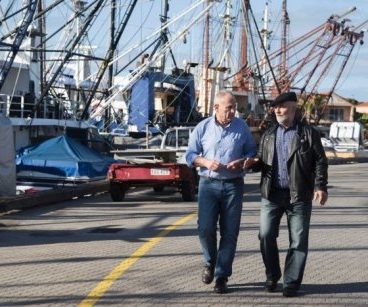
Oil drilling bid for Great Australian Bight not a boring debate for Port Lincoln locals
Plans to drill for oil in the Great Australian Bight off the coast of South Australia have sparked a lively debate in the seaside town of Port Lincoln. In a city that calls itself the seafood capital of Australia, the discussion centres on the future of its greatest asset — The Great Australian Bight. Norwegian oil company, Equinor, plans to drill for oil in the seas that support Port Lincoln’s most important industry.,, Norwegian Fisherman’s Association representative, Bjornar Nicolaisen, also addressed the meeting, on behalf of an ongoing campaign in Norway to protect fisheries from drilling. Overwhelmingly speakers spoke against Equinor’s plans — just three people on the evening put forward cases for the plans. >click to read<09:57
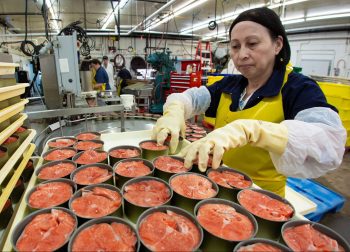
British Columbia: The Last Cannery Standing
While British Columbia’s canning industry dates back to the earliest days of Canadian confederation, the canning process itself is even older, invented by a French chef in the early 1800s. By 1864, Americans were canning salmon on the Pacific coast. Three years later, Scottish entrepreneur James Syme established a canning operation near the mouth of the Fraser River in what would soon become British Columbia—the first of 223 salmon canneries that have come and gone in the province since then. The most fleeting of these enterprises, like Syme’s, lasted a season or two. The most tenacious, the North Pacific Cannery in Prince Rupert, boasted almost 90 consecutive years of fish processing, starting in 1889 and ending in the late 1970s. >click to read<09:07






